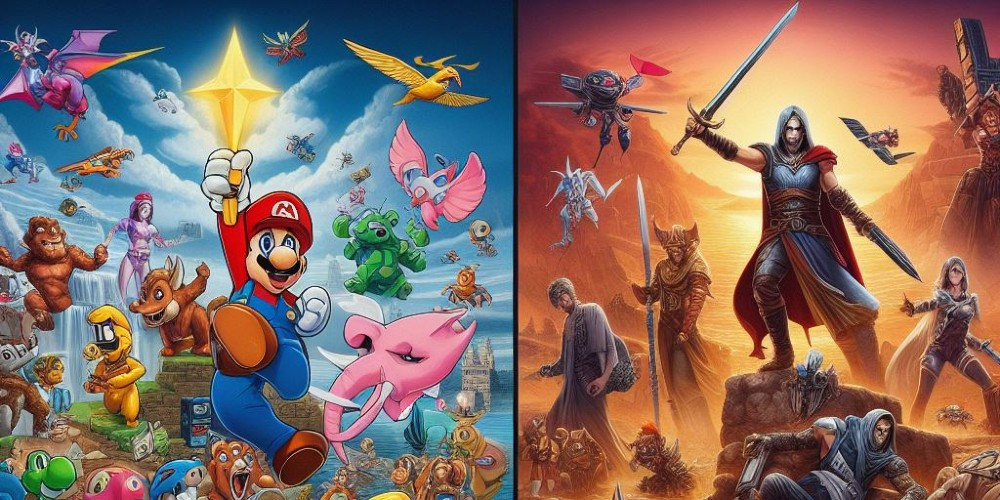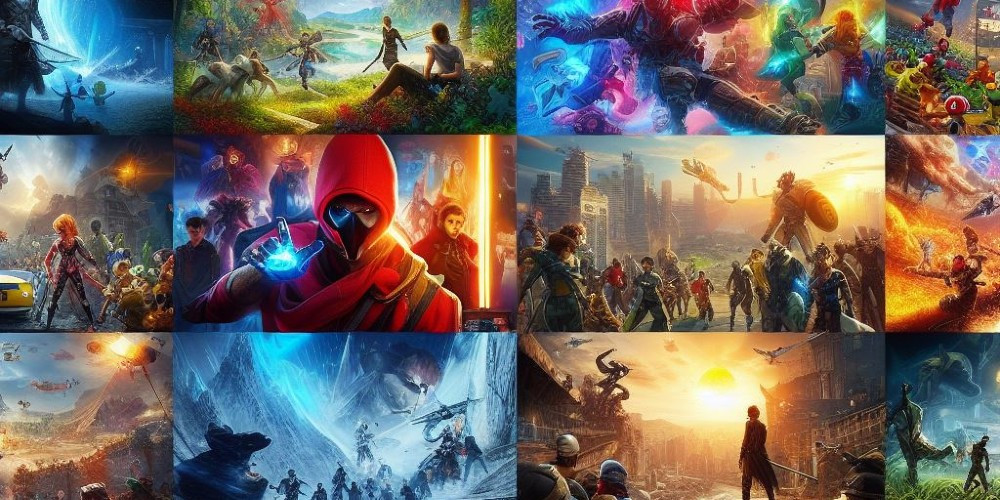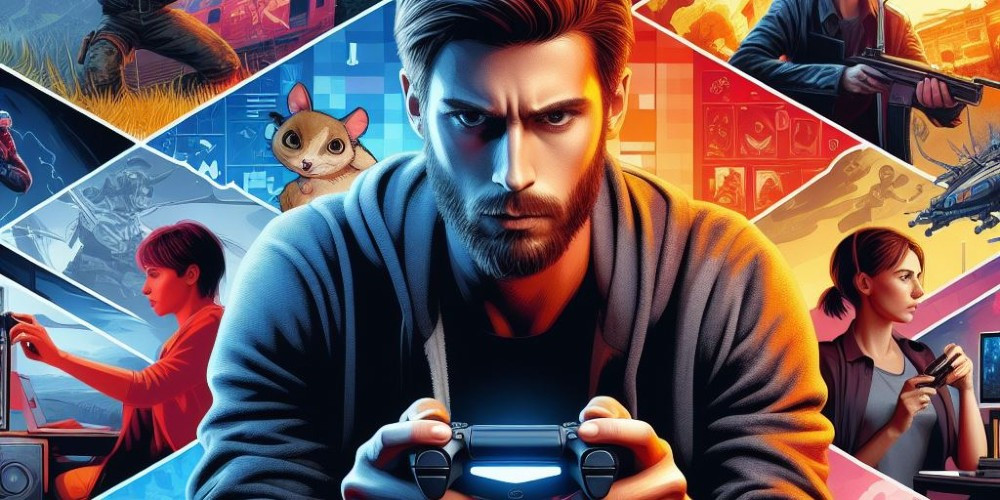Exploring the Depths of "The Game Experience"

The realm of video games is vast and varied, encompassing a wide range of interactive experiences that challenge, entertain, and even educate players. As a passionate observer and commentator on game design and theory, I've dedicated a significant portion of my blog to dissecting what makes games resonate with us. The conversation around what constitutes a game has evolved, especially as the digital age introduces experiences that defy traditional definitions. This leads us to a pivotal distinction that has been at the forefront of my recent musings: the difference between a game and the "game experience."
Defining the Game Experience
The "game experience" is a holistic term that captures more than just the mechanics or objectives of a game. It encompasses the visual and auditory presentation, the cultural and communal interactions it spawns, and its broader impact on our perception of media and the world. Unlike a game's review score, which is static and immediate, the game experience is dynamic, continuing to evolve and reveal its depth long after its initial release. This concept challenges us to reconsider our labels for digital interactions that don't fit neatly into the "game" category, suggesting a broader, more inclusive understanding of what games can be.
Game vs. Experience: A Comparative Look

To illustrate the distinction, let's compare two different interactive experiences: Tetris and Heavy Rain. Tetris offers a quintessential game experience where the mechanics of rotating and placing blocks provide immediate, engaging gameplay. Heavy Rain, on the other hand, serves as a narrative-driven journey where gameplay serves the story, making it a prime example of a game experience that transcends traditional gameplay. This comparison highlights how the essence of engagement can vary significantly between different titles, suggesting that the value of an experience isn't solely in its gameplay but in the broader experience it provides.
The Subjectivity of Gameplay
Whether an experience is more game or game experience often depends on the player's approach. Consider Metal Gear Solid and Braid; both can be approached as traditional games focusing on mechanics and objectives. However, many players are drawn to these titles for their stories, visuals, and the emotions they evoke, engaging with them as game experiences. This subjectivity underlines the importance of recognizing and valuing the diverse motivations and responses players have towards different digital experiences.
Experience Beyond Gameplay

The debate between game and game experience isn't just academic; it reflects on how we perceive and value different types of digital interactions. For instance, Metroid: Other M was marketed as the "ultimate Metroid experience," indicating an emphasis on the overall impact and engagement beyond just gameplay. This approach recognizes that the presentation, story, and community controversy can significantly affect how a game is received and remembered, suggesting a broader, more inclusive understanding of what makes a game meaningful.
The Cyclical Relationship Between Game and Experience
The interaction between a game and its broader experience is complex and cyclical. Motivation plays a crucial role in this relationship, as the reasons players are drawn to a game can influence how they engage with it and what aspects they value most. This cyclical nature challenges us to consider how games and game experiences influence each other, shaping how games are developed, marketed, and played.
Marketing the Game Experience

Understanding the distinction between game and game experience has practical implications for how we market and discuss these digital interactions. Games like Amnesia: The Dark Descent are marketed not just on their gameplay but on the atmosphere, story, and emotional engagement they offer, positioning them as holistic experiences. This approach reflects a growing recognition that the appeal of many games lies not just in "winning" but in the journey, emotions, and connections they foster.
In conclusion, the game experience represents a broad, inclusive way of understanding and valuing the diverse range of digital interactions available to us today. Acknowledging and valuing the diverse range of reasons and interactions that players have with games enables us to fully recognize the complexity and variety within the gaming world. As the lines between traditional games and other digital experiences continue to blur, embracing the game experience as a concept can help us navigate and celebrate this evolving medium.
Latest posts
See more-
![The Last of Us Part II: In-Depth Character Analysis and Storyline Exploration]() Editor’s Choice
2024-08-11
The Last of Us Part II: In-Depth Character Analysis and Storyline Exploration
The Last of Us Part II is an action-adventure video game that has gained significant popularity since its inception. Developed with immense creative prowess by...
Editor’s Choice
2024-08-11
The Last of Us Part II: In-Depth Character Analysis and Storyline Exploration
The Last of Us Part II is an action-adventure video game that has gained significant popularity since its inception. Developed with immense creative prowess by...
-
![CrossCode Developer Announces Alabaster Dawn, Enters Early Access in Late 2025]() News
2024-08-12
CrossCode Developer Announces Alabaster Dawn, Enters Early Access in Late 2025
In 2021, Radical Fish Games initially introduced a new action RPG titled Project Terra. Now, they have officially named it Alabaster Dawn and announced that...
News
2024-08-12
CrossCode Developer Announces Alabaster Dawn, Enters Early Access in Late 2025
In 2021, Radical Fish Games initially introduced a new action RPG titled Project Terra. Now, they have officially named it Alabaster Dawn and announced that...
-
![Alabaster Dawn Planned to Have 30-60 Hours of Playtime, Demo Launching in Early 2025]() News
2024-08-13
Alabaster Dawn Planned to Have 30-60 Hours of Playtime, Demo Launching in Early 2025
Radical Fish Games has made an exciting announcement regarding their upcoming action RPG, Alabaster Dawn, which is set to enter early access in 2025. In...
News
2024-08-13
Alabaster Dawn Planned to Have 30-60 Hours of Playtime, Demo Launching in Early 2025
Radical Fish Games has made an exciting announcement regarding their upcoming action RPG, Alabaster Dawn, which is set to enter early access in 2025. In...
Latest Reviews
See more-
![]() Action
Cult of the Lamb
Action
Cult of the Lamb
-
![]() Action
WILD HEARTS™
Action
WILD HEARTS™
-
![]() Casual
Gacha Club
Casual
Gacha Club
-
![]() Action
Call of Duty®: Warzone™ 2.0
Action
Call of Duty®: Warzone™ 2.0
-
![]() Action
Gacha Cute
Action
Gacha Cute
-
![]() Action
Cuphead - The Delicious Last Course
Action
Cuphead - The Delicious Last Course










